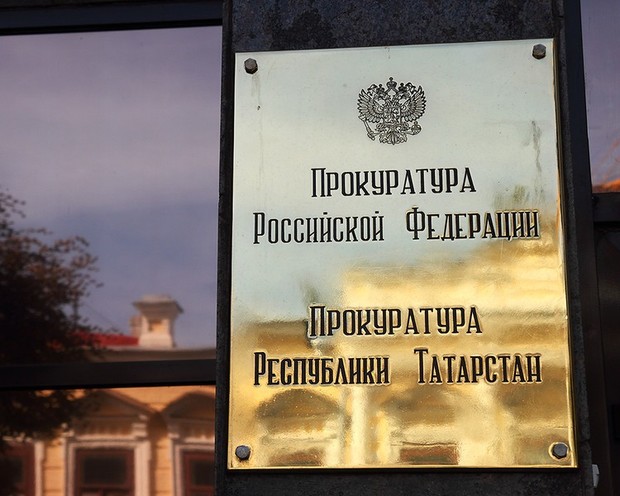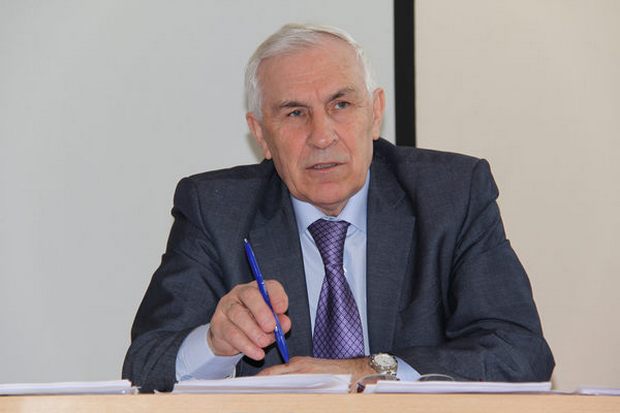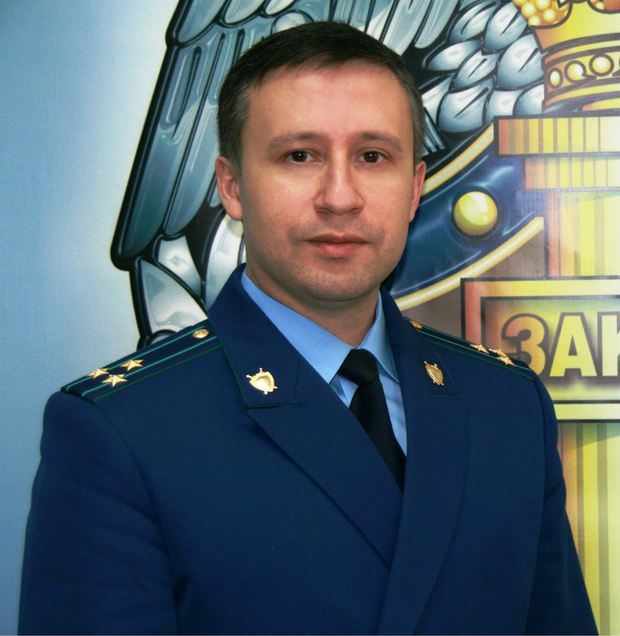Prosecutors call parents to school because of the Tatar language
The compliance of the right on voluntary studying of the Native language is being massively checked in Tatarstan schools, in some of them they have already made conclusions
The prosecutors are going to find out how many children in Tatarstan learn Tatar, Mordovian and Jewish with the consent of the parents, how many hours and according to what programs. Neither the Ministry of Education nor the Prosecutor's office of Tatarstan do not comment on the course of the audits, but the sources of Realnoe Vremya give information on them. Besides, according to the parents of pupils, schools are holding mass parent meetings due to inspections, at them they collect the consent statements for the study of the Tatar language. What is more, parents themselves have already communicated with representatives of the Prosecutor's office. The situation has split the parent community into two camps. In parallel, the Prosecutor's office of the Volga Region has made to one of the schools a submission to correct violations in the curriculum for the study of languages, but what are the violations — not reported. All this is happening against the backdrop of the forthcoming visit to Tatarstan of Minister of Education and Science of the Russian Federation Olga Vasilyeva.
The subject of inspection: whether parents can influence the choice of languages of education
On 4 October, the public in VK '''The Russian language in schools of national republics'' published a scanned copy of the telephone message in the address of the principals of the schools in Vakhitovsky district of Kazan, signed by Deputy Prosecutor of the district Elena Gavrilenko. The document dated on 2 October contains the requirement to submit by courier the documents by 5 p.m. on 2 October in connection with ''the time constraints of the term of implementation''. The letter states that the Prosecutor's office instructed to check ''the compliance with the Federal law on ensuring the rights of citizens on a voluntary study of the native language from among the languages of the peoples of the Russian Federation and state languages of the republics of the Russian Federation''. Earlier, such order to the Russian Prosecutor General Yury Chaika was given by the head of the state Vladimir Putin.
In Kazan, the directors were required to provide curricula (weekly) (invariative and variable parts) for each level, weekly class schedules, as well as written explanation on the following questions:
Ruslan Galiev: ''We assume that someone from the directors ''leaked'' the document in Telegram. I will not refute this [existence]. If to assess its content, it contains no illegal requirements. Any inspection begins with a study of documents.'' Photo: prokrt.ru
- what exactly languages of the republics of the Russian Federation are studied in schools (gymnasiums, lyceums etc.)?
- how many hours are allocated for studying the Russian, Tatar and native languages in the context of 1-11 grades?
- whether is the opinion of parents taken into account on the choice of languages of education, including when adopting the curricula?
- are there written consent of the parents of the students to study their native language and Tatar language — what is the number of children enrolled separately in Tatar and Russian groups in the context of 1-11 grades?
The sources of Realnoe Vremya confirmed the authenticity of this document. Moreover, they note that the directors coped with the task in due time!
A source: there were difficulties with written consent statements
The Prosecutor's office of Tatarstan did not comment on either the course of the inspections or the first conclusions, explaining that ''it is not necessary to give it extra impetus to this topic''. ''We assume that someone from the directors ''leaked'' the document in Telegram. I will not refute this [existence]. If to assess its content, it contains no illegal requirements. Any inspection begins with a study of documents,'' stated senior assistant of Prosecutor of Tatarstan Ruslan Galiev to Realnoe Vremya.
To the question — why demanding from schools if the district offices and the ministry of education have detailed information — the Prosecutor's office explains: nobody will send a request from each district to the ministry, therefore the primary information is checked on places.
As a close to the Prosecutor's office source of Realnoe Vremya claims, the answers did not become a serious burden for the directors as most of the requested documents are available in each institution. Moreover, the law requires to publish timetables, study plans and data on learners on the school website. Expected difficulties arose only with the consent statements of the parents. Few submitted them to the inspectors. A lot more there were director's explanations with reference to the Constitution of Tatarstan, why they never asked the written consents before.
Parents know about inspections
The thematic publics are actively discussing the subject of inspections and writing the consents. For example, in the ''Extortions in schools and kindergartens'' it was posted:
''I have recently talked to a teacher of the Tatar language, she says, in Almetyevsk the head of the educational institution said at the planning meeting if at least one application from the school went to the Prosecutor, the director would make a severe reprimand, the head for national affairs will be fired. Now I understand why school by any means are trying to beg the consent of parents and to hush up the situation with refusals from the Tatar language.''

Prosecutor's inspection in practice: unexpected calls to school and ''provocative questions''
A mother of two children, the pupils of the 8th and 5th grades in a school in Sovetsky rayon, said on condition of anonymity to Realnoe Vremya how an inspections went. According to her, their school has no problems with the Tatar language. As chairperson of the parent committee, she did not receive from any of the parents complaints about the unwillingness of their children to study the Tatar language. This question was not raised in her family as well since learning of the second state language is perceived as self-evident because the Tatar language is part of the culture of the Tatars.
However, that day the woman received a call from the teacher and asked to come to school – there came a prosecutor to check.
''The Public Prosecutor's inspection came without notification — they got a call on the morning and after half an hour they already came. Teachers and parents were not ready for it,'' told the woman.
In total, three parents came to school. According to her, they also called the others, but because of unexpected visit of prosecutors many of the parents couldn't come. The questions were asked to each parent in private. In particular, the interlocutor had not been told what to say. There were only three questions, the first of which was: ''Have the question of mandatory or non-mandatory study of the Tatar language ever been raised in the family and at school parents' meetings?''
''The school is combined, not Tatar. This question didn't come up at all — we never had conflicts,'' recalls the interlocutor of the edition. She responded with two no to the question.
The second question the woman considers to be provocative and advises to be prepared for it for parents who unexpectedly also can become witnesses of the Prosecutor's inspection. The prosecutors wondered, ''Have you been offered to choose an alternative to the lessons of the Tatar? Do you know that the Federal legislation provides the item, according to which you can refuse from the lessons of the Tatar language and choose another subject in the curriculum?''
The mother of two children asked to name this article of the Federal law, but she did not receive further clarification, except that it was in Federal legislation. Thus, as a result of communication of the two sides, she had an impression that the prosecutor, in fact, argued that, under the Federal law, parents may refuse from any discipline. ''She claimed that, under the Federal law, there is such item. I believe that this is a provocative question,'' says the woman.
Another question concerned the complaints of children about the lessons of the Tatar language, but the interlocutor of the edition considers this question to be provocative.
''Children don't like to study. Perhaps, some day they will tell, ''Oh, I'm tired to do the lessons on the Tatar language''. This is also a complaint! And some of the parents will take and tell that they did complain, and it will be understood also ambiguous.''
Summing up, the woman said that their school is one of the best in the republic and the parents who give there children perfectly understand why they go there — for knowledge. ''In this case we are talking about knowledge of another language, which will never be superfluous,'' said the parent.

The first prosecutor's decision to correct violations on the threshold of ''the government inspector's'' visit?
The press service of the Ministry of Education stated that they would refrain from comments, but as Realnoe Vremya found out, the inspections are really taking place across the republic.
The inspectors themselves still do not know whether their results will be publicly disclosed. However, after lunch the same public published a scanned copy of another document, this time from the public Prosecutor of Privolzhsky rayon of Kazan, dated 4 October. The agency during an inspection of a statement of one of the parents of the Russian-Tatar secondary school No. 150 of Kazan revealed ''shortcomings in the curriculum for the study of the Tatar language''. The paper reported that the management of the school No. 150 made a submission to eliminate violations. However, it is unknown what exactly violations are needed to be eliminated.
''I'm afraid that school directors can become whipping boys by the results of these inspections,'' said chairman of the Republican Committee of Union of Workers of Education and Science of Tatarstan Yury Prokhorov. According to him, none of the schools can approve the curriculum without approval of the education departments and parent bodies. So, it is wrong to place the responsibility on directors alone, he believes. ''The directors should take the Republican law on languages and refer to it.'' On the question what to expect from the new educational course, Prokhorov replied: there won't be mass layoffs of teachers of the Tatar language in Tatarstan, but bringing the curriculum into conformity with the Federal will begin from January 2018. ''How and what – it is still unclear,'' he commented.
The messages themselves are remarkable due to the fact that they appeared on the same day as the news about the upcoming working trip to Tatarstan of Minister of Education and Science of the Russian Federation Olga Vasilyeva. Her visit was scheduled for 6 October. However, closer to the evening the minister's plans changed. The visit has been postponed.
